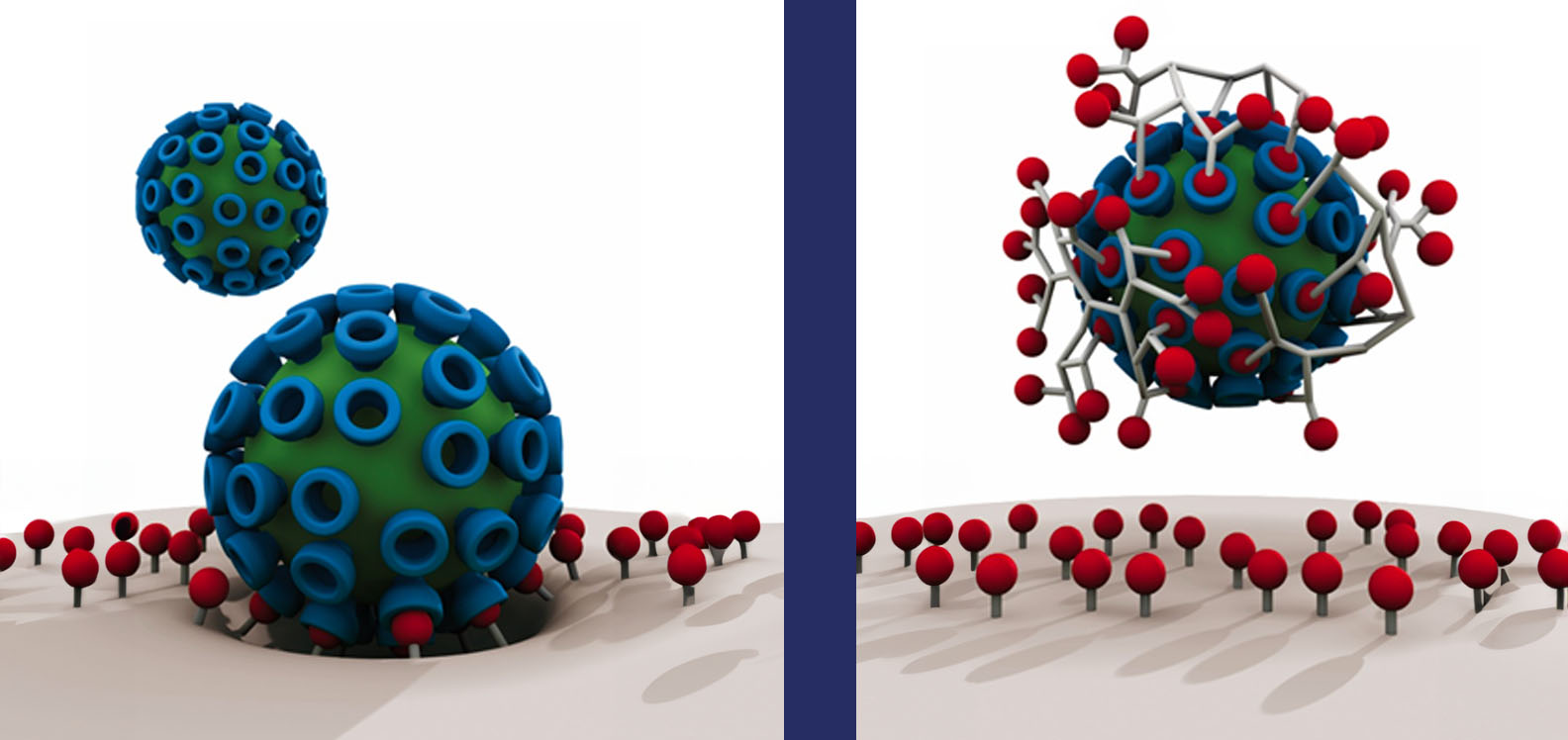
Left: Virus sticks to cell surface using multiple receptors. Right: Macromolecule mimics cell surface receptors, completely blocking virus.
Swansea University is a partner in a new international collaboration to develop better ways to stop pandemic influenza and safeguard global health.
The project ‘Precision Glycol-oligomers as Heteromultivalent Pandemic influenza Virus Blockers’ has been awarded funding worth €1.8m from the Novo Nordisk Foundation to support the development of pandemic influenza A virus blockers.
The 3-year project is an interdisciplinary consortium being led by the Freie Universität Berlin, and also includes Aarhus University and Imperial College London.
Dr Sumati Bhatia from Swansea University’s Chemistry Department will lead the part of the project focused on making substances to block the influenza A virus. Dr Bhatia’s work has advanced designs for substances that perform well in targeting and blocking the influenza A virus and her recently published work in Nano Letters highlights a new way to target both virus binding and release steps in the infection which drastically reduces the viral infection process.
As the influenza A virus sticks to cells using certain proteins starting the infection process, the project aims to create molecules that mimic these cell surfaces, tricking the virus and stopping it from infecting. If successful, this could lead to a new way to fight pandemic flu strains.
Dr Bhatia said:
“This project brings together experts in different fields like molecule design, testing, and understanding how the virus works. Through our research, we're exploring new approaches to combat influenza by targeting key steps in the virus's lifecycle and hope this will lead to new drugs that can fight influenza, so we can be ready for future pandemics.”
